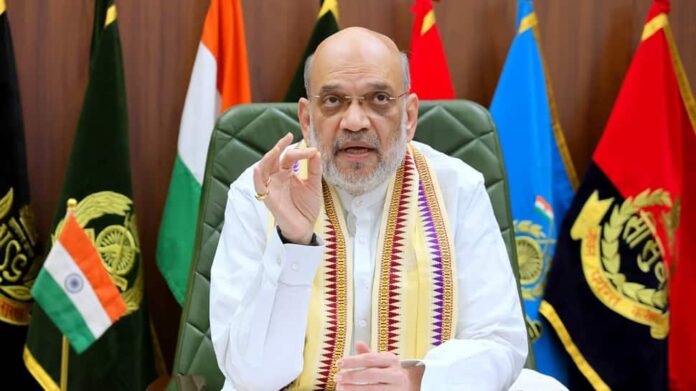Union Home Minister Amit Shah today hailed the new criminal justice laws saying that after 77 years of Independence, the criminal justice system is now completely ‘swadeshi’ and embedded in Indian ethos. Union Home Minister Amit Shah said that under new criminal justice laws, the conviction rate is expected to go up to 90 per cent. He added that it will further reduce crime. “Instead of ‘Dand’, it is now ‘Nyay’. Instead of delay, there will be speedy trial and speedy justice. Earlier, only the rights of the Police were protected but now, victims and complainants’ rights will be protected too,” said Shah.
“Justice will replace punishment, speedy trial and justice will be provided in place of delay…Implementation of the three criminal justice laws will lead to the most modern criminal justice system,” said Home Minister Shah.
Rubbishing the opposition’s claim of forcing the laws through Parliament, Shah said that the three criminal justice laws were deliberated upon for over four years. Shah said that he is ready to meet any opposition leader who has concerns about new criminal laws. “I appeal to political parties to rise above political lines to support criminal justice laws,” said Amit Shah.
The Union Home Minister further said, “We have decided the priority of sections and chapters in line with the spirit of our Constitution. The first priority has been given to (the chapters on) crimes against women and children. I believe that this needed to be done much earlier. An entire chapter with 35 sections and 13 provisions has been added. Now, gang rape will attract 20-year imprisonment or life imprisonment, rape of a minor will attract the death penalty, a separate crime has been defined for sexual exploitation by hiding one’s identity or making false promises.”
Shah said that a provision has been made to record the statement of the (woman) victim at her home in the presence of women officers and her own family.





